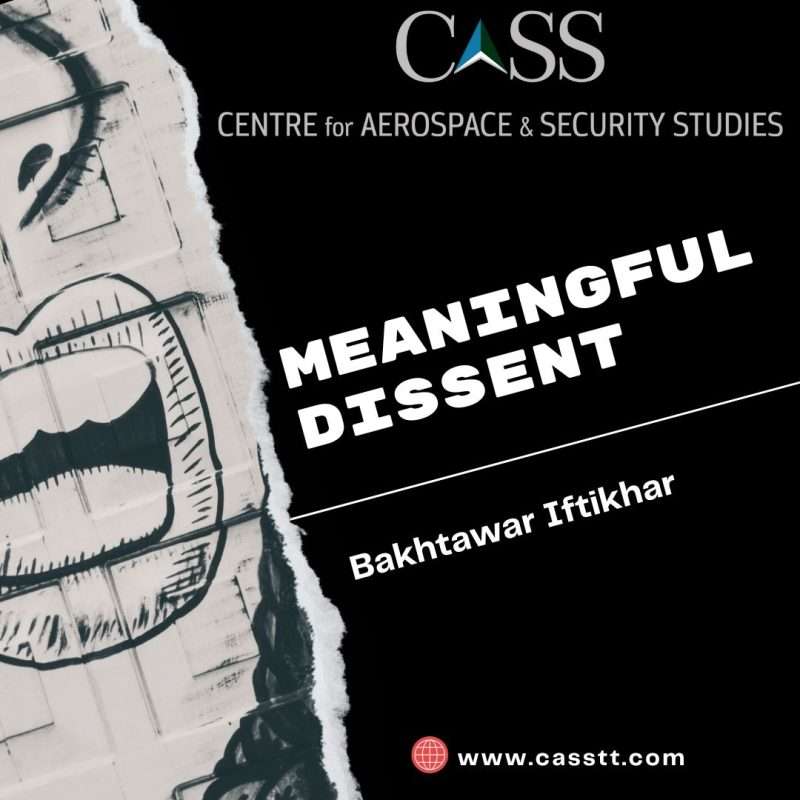Conflict can be healthy, positive, and even necessary – if regard for the common good drives non-violent opposition. Rooted in the belief that meaningful dissent is essential for progress and an equitable future, this article asserts that state-restrictions on dissent is both counterproductive and increasingly difficult in the digital age. Therefore, states should not only allow but rather nurture and facilitate dissent in order to strengthen the masses’ trust in governments and to circumvent large-scale violence.
Throughout history, from the anti-apartheid voices in South Africa to the civil rights movement in the United States, dissent against injustices has proven crucial in compelling states to acknowledge and enshrine the rights of their citizens in legislation and constitutions. While societal inequalities may linger, these legislative measures underscore a state’s commitment to addressing and rectifying these injustices.
While some individuals amid the masses are likely to misuse freedom of expression, those in authority often equate all opposition with wrongdoing or a threat at best, and treason at worst. Consequently, they resort to control, and sometimes, use force to curtail it. This phenomenon is not limited to authoritarian regimes only; it affects the seemingly democratic just the same, as is the case in India – currently ranking at 161 out of 187 in press freedom owing to Modi’s policies. In Pakistan, which currently ranks 150 out of 187, the constitutional rights to freedom of speech and assembly, as enshrined in Article 19, have many a times faced challenges and limitations.
Suppressing dissent is detrimental to societal progress as well as the state itself, for it undermines the quality of national discourse and deprives the state of solid knowledge infrastructures that appropriately represent public interests. In other words, the state blocks an avenue of credible public input for itself. Thereafter, narratives imposed or artificially built by the ruling elite are misleading, out of touch with public opinion as well as ground realities, and therefore, likely to collapse under their own weight. Moreover, such practices can also aggravate identity-based grievances, trigger disaffection, polarisation and radical ideas to the detriment of societal harmony.
Another important factor to consider is the states’ receding dominance over narratives and the increasing autonomy of non-state entities like social media companies. All states now depend on social media companies to remove objectionable content or to obtain user data. This is illustrated by the fact that in the second half of 2022, the United States, followed by India issued the most number of requests to obtain user data, while Pakistan stood at number 19. In today’s digital age, information flows endlessly through porous digital borders. So, if dissenting voices do not find breathing space in the mainstream, they may reroute to social media and even become susceptible to exploitation by adversaries.
Those in positions of power must reflect on historical actions and current oversights related to marginalised groups, creating channels for understanding and reconciliation. Organic opposition should not be seen as undermining state sovereignty; instead, it is an opportunity to reinforce the social contract with all citizens, especially the disenfranchised and overlooked minorities. With the vast resources at its disposal, the state carries a significant responsibility to provide space for those affected and to address their grievances. Although the general populace is urged to ensure their dissent remains free from violent influences, it is essential to recognise that their civic capacity is often constrained by unfulfilled basic needs.
Therefore, states should implement practical measures to foster meaningful dissent. One approach could involve augmenting service delivery by increasing GDP spending on education. Marginalised and dissenting viewpoints should be heard to construct organic narratives. For instance, there is a growing emphasis on the perspectives of Black, Native, and women in US history. In Australia, there is a increasing recognition of Aboriginal histories and cultures in the national curriculum. Similarly, in Brazil, there’s an increasing focus on the history and contributions of Afro-Brazilians and indigenous communities. Digital platforms can be leveraged to bridge any disconnect between the state and its citizenry, such as through data visualisation of the political and legislative processes.
In conclusion, healthy conflict is the hallmark of democratic institutions, highlighting lacunas and fissures in policy for course correction. Thus, meaningful dissent should be embraced as a distillery where ideas are defined, tested against time and refined.
Bakhtawar Iftikhar is a Research Assistant at the Centre for Aerospace Security Studies (CASS), Islamabad, Pakistan. She can be reached at cass.thinkers@casstt.com
Design Credit: Mysha Dua Salman




